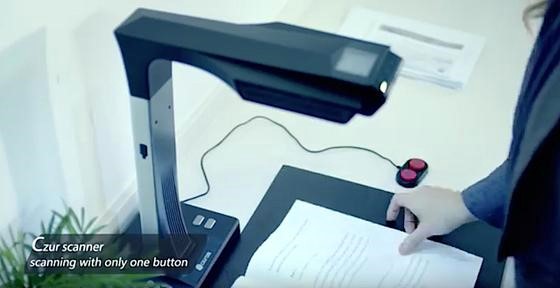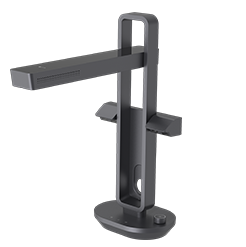Beating Free
February 1973 was a month of uncertainty for me. I was ready to graduate from college in a few months and had absolutely no idea what I wanted to do when I “grew up” (a state of mind which continues, verily, to this very day!). I somehow found myself being interviewed by the head of an insurance firm, a very nice guy who sensed almost immediately, as I had, that putting me in his office would be inserting a round stick of dynamite into a square…well, office. We had a cordial conversation anyway, and at the conclusion of it he showed me a blocky machine that was hooked up to a television. “This,” he said, “is the future.” He picked up a rectangular object that looked like an audio cassette on steroids, inserted it into the machine, and turned on the television so we could watch a gentleman nervously give a lecture about actuarial tables and premiums and whole life insurance and the like. What I was being shown was something called a VCR in U-Matic format, the forerunner to Betamax and VHS and the grandparent to DVDs and yes, streaming. I was assured that within a few years there would be one of these machines, or something like it, in every home in the country. My new friend probably had no idea how that machine, and its descendents, would change things. I didn’t either, but I felt that ground move. This thing was a game changer.
I had the same feeling, and not in a good way, when I was wading through my emails yesterday and found a news release about a company named CzurTek (pronounced “SEE-zer Tek”) which has developed a relatively high-speed book scanner called “Czur” (just like Julius) which it appears to intend to sell for around $169.00 and which it is attempting to bring to market by crowd-sourcing.

The video of it is impressive, for sure; Czur does involve some human interaction, but nothing that a semi-sober fraternity brother couldn’t handle. There is a lot of talk about algorithms and the like that I didn’t understand but the legal part of me got went on high alert: the bad kind. I remember what happened, and is still happening, to the music industry, when CD players and copiers started appearing as basic equipment on home computers. “RIP AND BURN!” became the catchphrase of the day. It used to be that if you wanted to have a bestselling album you had to sell a million copies or more in a week. A lot of people did that, too. Now, not so much. You can hit the top of the charts on some weeks by bringing home unit sales of five figures. People don’t buy a lot of music anymore; they go to peer-to-peer sites or they stream it but they don’t buy a lot of it. It’s tough to beat free. It didn’t happen overnight, but it happened fast enough that no one knew what was happening. I think that we are about to see the same thing happen, and with books this time. And it comes at a time when the industry, including the publishers and authors, can’t take the hit.
The folks at CzurTek know exactly what they are doing. The video I have linked you to above seems benevolent enough — there’s talk of copying rare and delicate manuscripts to preserve them, for but one example — but when you go to their Facebook page the 800-pound bear in the room is too much to ignore. Witness this, taken from the August 30, 2015 post off of CzurTek’s site, which infers that the idea for Czur sprung from the high cost of textbooks:
Normally one textbook is more than 100 dollars, and sometimes a professor will ask us to buy 6 or 7 of them.
In order to solve this problem, some of my schoolmates would buy second-hand books, or photocopy them. I once borrowed my roommate’s camera to take pictures of an entire book. It was really tiring, and hard to get high-quality pictures when the pages are curved.
Two years later….
in Shenzhen, we decided to have a go at solving this problem. After several attempts, we found that digitizing the books seemed to be the best approach. However, a book scanner costs tens of thousands of dollars, which is beyond the reach of ordinary people. So we decided to create one ourselves! Over the past 3 years, in the course of visiting numerous factories and testing our algorithm hundreds of times, we have turned ourselves into specialists in this area.
Now….
all the technical problems have been solved, and the prototype is ready. Ten minutes is all it takes to scan a 300-page book easily and comfortably; scanning of personal documents is possible as well. No more lugging heavy books all over campus! What’s more, if you haven’t finish reading a library book by the due date, just make a permanent copy for yourself. The robust OCR software included means the electronic document can be edited, a great help for essay writing.
In other words, if a book is too expensive, just copy it. If it’s due back at the library and you’re not done with it, copy it. If the books are too darn heavy, copy them. Edit the text and put it in your essay! The CzurTek website even talks about building your own library for free, of course.
I’m not without sympathy, up to a point. College textbooks are extremely expensive. There are reasons for this, particularly with respect for those dealing with higher mathematics, biology, and physics, but that’s a topic for another time. But does the cost — or that they’re too heavy, or due back at the library — make it okay to steal them? Just copy them.
This isn’t the future. It’s already here. There are a bunch of book scanners on the market right now that don’t quite do the job well, but have the basics down. If Czur isn’t the gamechanger it appears to be, someone else will make one that is, and make it soon. The issue then becomes whether you want to spend a year of your life creating something that gets copied and probably illegitimately disseminated as soon as it is published, with no compensation to you. To go back to the music business: musical artists have found other revenue streams, such as licensing their music to film projects, tee-shirts, bumper stickers, tours, and the like. Their music? The newbies give it away, in the hope that someone will come to their concerts and buy merchandise. What are authors going to do? Tours? Please. Do you really think that someone is going to buy a ticket to listen to (fill in the blank) read or give a talk. Tee-shirts? C’mon.
I’ve prattled on a bit too long on this, and I apologize for that. I see this, however, as a significant problem. Am I Chicken Little? Or am I Dr. Miles Bennell? If I’m right, what are we — you, me, and the publishing industry — going to do about it? You tell me. And as for you folks at CzurTek…how would you feel about someone reverse engineering Czur, and giving it away for free? Sound good?















